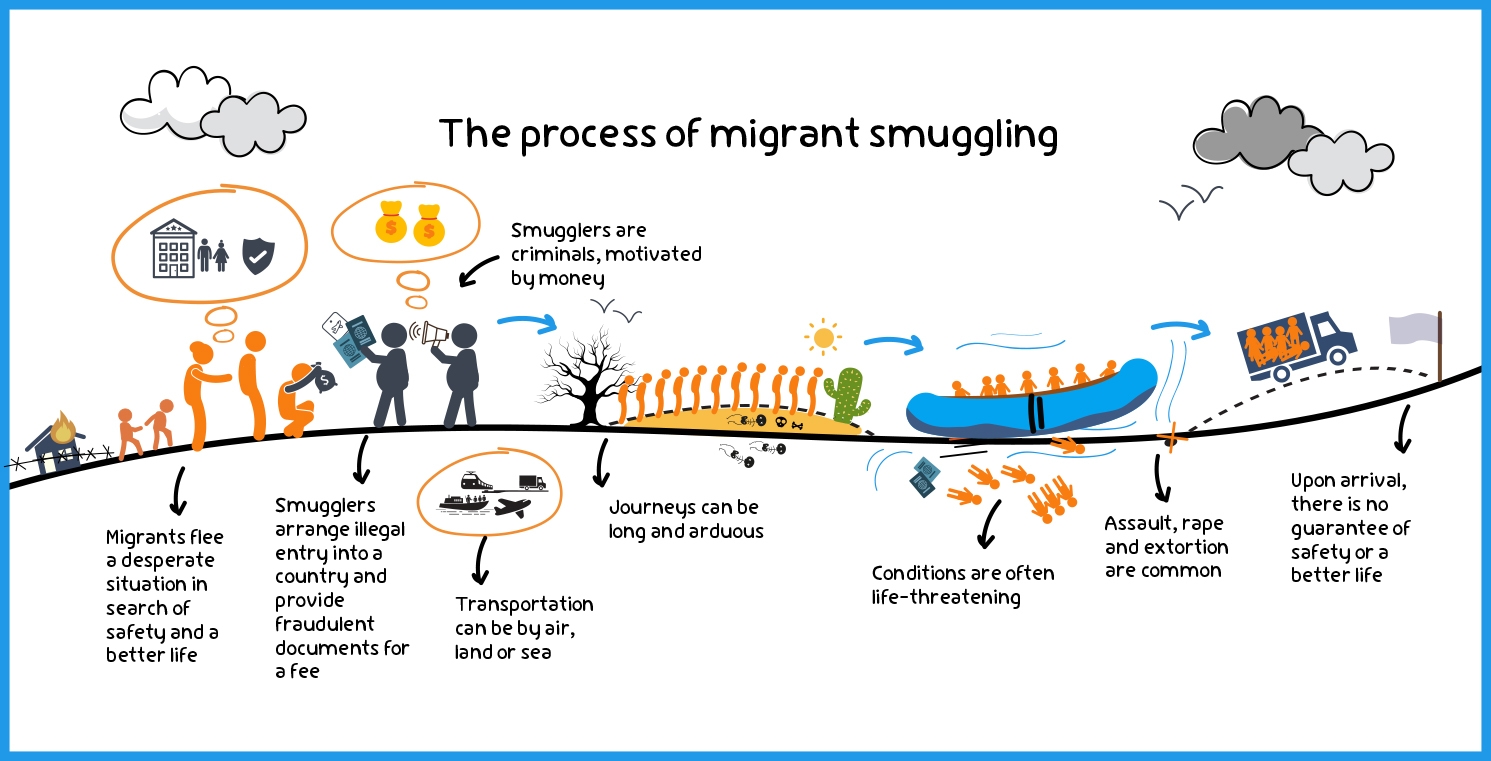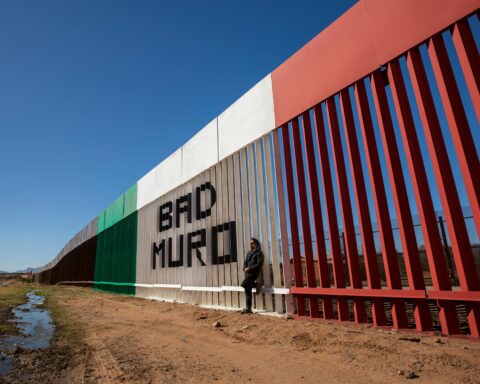It’s been more than 16 years since her son drowned in Lake St. Clair, but a Toronto mother is still reluctant to talk about what happened in the ill-fated human smuggling attempt.
The accident remains a symbol of the dangerous and deadly consequences of human smuggling, which some people regard as a victimless crime. It also highlights an Eastern European community that has seen significant human smuggling in recent years, with the facilitators sometimes occupying positions of authority in their country.
On Sept. 5, 2005, Ontario Provincial Police recovered the body of a 24-year-old man from the waters of Lake St. Clair on the Tecumseh-Windsor border. With $10,000 in his pants, the victim had drowned when a jet ski speeding across the lake capsized about 200 metres from the Windsor shore.
The victim and his mother had travelled from the Balkans to New York on forged passports. Smugglers devised the dangerous scheme to transport them into Canada on a jet ski. But in a tragic turn of events, the jet ski capsized, and both plunged into the river. A second personal watercraft pulled the mother to the shore. But her son never made it to safety.
Police alleged the same smuggling ring transported many others over the years, hiding people in the trunks of cars, on trucks, boats and trains. On some occasions, people jumped from trains to avoid detection.
Four years later, a Toronto judge convicted a smuggler of Iraqi origin and others of conspiring with Albanian smugglers on the U.S. side of the border to smuggle the mother and son. He received a 4 ½ year sentence, and also served time in prison for rape and sexual assault.
It is not clear what prompted the family to risk their lives to get to Canadian shores on that tragic Friday of September, 16 years ago. Through court records and searches, New Canadian Media was able to track the family of the drowned Albanian man. A part of the family remains in the Toronto region and others have moved out West. Although 16 years have passed since the tragedy occurred, the parents were reluctant to talk about that painful experience.
Other individuals or groups from Albania have been caught trying to make it through to Canada, or using Canada as a base to enter the U.S. In 2019, Canada deported a Kosovar man charged with human smuggling. Ironically, he had arrived in 2008 on Canadian shores by being smuggled himself. A few years later he was found guilty of a conspiracy to smuggle other Albanians as well as Mexicans across the border to the U.S. in exchange for payment.
Human smuggling is a global phenomenon driven by people who are desperate to get out of bad economic or political situations in their countries of origin.
A recent survey conducted by a local Kosovo polling agency with 1,050 respondents found that 50.5 percent of the respondents would immigrate if they had the chance and about 44 per cent said that they or their family members had such plans.
Albania, along with Kosovo and other countries that emerged from the dissolution of Yugoslavia, has been considered for a long time both a source and transit point for human smuggling.
The sense of disillusion makes people attempt to get across illegally
Sister Imelda Poole, who works to battle trafficking and exploitation in the region, points to a sense of disillusion that prevails among many, especially youth who see no long-term future or an opportunity to get ahead through the system. She says a survey conducted a few years ago by her mission shows 85 percent of Albanians want to leave Albania.
“It shows what a disillusioned nation we really are,” says Sr. Poole, president of Mary Ward Loreto (Albanian Mission Against Human Trafficking). She also heads RENATE (Religious in Europe Networking Against Trafficking and Exploitation), a network fighting modern slavery across 31 countries in Europe with 136 anti-trafficking networks.
Two major anti-smuggling operations, cited as “mega-operations” by Albanian State Police, happened after the U.S. State Department reported that 1,200 people had been smuggled illegally to the United States between 2013 and 2018. Canadian police also contributed to the investigations, as did Spain, France, the UK, Belgium and Kosovo. People were being charged $25,000-30,000 for passage to such destinations as the US and Canada. In January another major operation stretching over three countries – Albania, Greece and Italy – led to the arrest of 29 people who had used sea routes to transfer more than 1,100 migrants from Turkey to EU countries.
But in various cases, people in authority have been implicated in human smuggling themselves. Even as the Canadian government, the EU countries and the US intensify efforts to combat human smuggling and adjust to the difficulties that it poses in places like Albania, police and border authorities were alleged to have been involved. According to court records, in the two major operations carried out in Albania in 2018 and 2020, at least six police and border officers were arrested under suspicion of having aided and abetted in the smuggling process. Yet to date, no sentences against any of them were handed down, despite a few of them being dragged through court procedures.
Mariana Meshi, the executive director of Different and Equal, one of the main shelters in Albania that form the National Referral Mechanism, says: “Despite harsh penalties prescribed in laws, there has been a considerable drop in sentences in recent years due in part to recent changes in the criminal procedure code where trafficking cases (in cases where there cannot be established organized crime) have been transferred to district courts. District prosecutors and judges are not specialized in dealing with trafficking cases and in many cases, the trial procedures fail.”
Although her organization does not have data on cases of convictions of border police officers accused of trafficking or smuggling, Meshi says: “(In Albania) there is a widespread perception that justice is not served when it comes to punishing people associated with power or involved in law enforcement structures. The perception is shared by the victims of trafficking. They think that corruption is a widespread phenomenon at all levels of government, including the institutions of justice.”
According to the U.S. State Department’s 2021 Annual global report on Trafficking in Persons (TIP), Albania is listed in Tier 2 of the department’s ranking, meaning that it does not fully meet the minimum standards for the elimination of trafficking but is making significant efforts to do so. The government did not convict any traffickers, identified fewer victims, and has decreased resources to NGO-run shelters, the report says.
Meshi also says that uncertainty about a brighter future among ordinary people makes migration seem to be a way out. She says that the urge to go abroad without assessing the real possibilities of safe migration affects the vulnerable groups who lack credible information sources and also have difficulties obtaining visas for legal migration.
Asked to reflect on what needs to be done for countries like Albania to overcome the burden of human smuggling and trafficking, Sr. Imelda also sees the problem as one of the destruction of values and feels that globalization and secularization have destroyed basic ethical values and dignity and respect for other human beings.
She notes that for countries like Albania to make progress a systemic change is needed. In her view: How can you begin to change a culture which is fearful and helpless and hopeless into having dignity and respect to making the systems work when nobody is encouraging it?
The conflict in Ukraine might exacerbate the problem
Conflict situations and internal displacement also fuel the protracted instability that offers fertile grounds for these criminal activities. Experts and government officials alike share the concern.
Since 2004, Canada has consistently been ranked as a Tier 1 country in the TIP report. According to government officials, Canada works with domestic law enforcement agencies and international partners to disrupt migrant smuggling networks which represent a threat to Canadian national security and to assist vulnerable migrants victimized as a result of the nefarious activities of criminal networks.
According to James Wanki, Spokesperson for Global Affairs Canada, Canada is active in sharing best practices in countering these crimes with Western Balkans countries through its participation in the Organization for Security and Cooperation in Europe (OSCE). He says that it is likely that the current situation in Ukraine will exacerbate the problem of smuggling in Eastern Europe and the Western Balkans as time goes on.
Read the entire series:
Part 1: All of us were desperate to get to Canada
Part 2: Smuggling of Mexicans from Canada to the U.S. a regular occurrence
Naser Miftari is an independent media researcher. His broad area of interest is in political theory and his research focus is on the future of public broadcasting, media governance and political economy of communication. For more than ten years he was a writer and editor for Koha Ditore one of leading newspapers in South East Europe. He is an active contributor in media research studies and has also taught graduate and undergraduate courses in media and political science at colleges and universities in United States and South East Europe. More recently he served as a contributor on global journalism issues with the Toronto-based Canadian Journalists for Freedom of Expression (CJFE) and in 2016 he was a research fellow at King’s College in New York.





